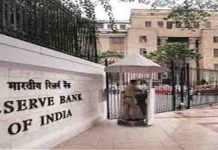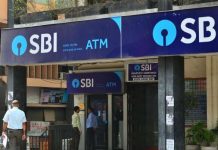The Income Tax Department on Thursday extended the tax-saving investment / payment deadline for the financial year 2019-20 to 31 July, giving relief to taxpayers amidst the COVID-19 crisis. The department has given this information by tweeting. According to the tweet, the department has said that we have extended the deadline further. Now, tax savings/payments for FY 2019-20 can be made by 31 July 2020.
Understanding & keeping in mind the times that we are in, we have further extended deadlines. Now, Tax Saving Investments/Payments for FY 2019-20 can be made upto 31st July, 2020. We do hope this helps you plan things better.#ITDateExtension#FacilitationDuringCovid#WeCare pic.twitter.com/HZZJSmN8g7
— Income Tax India (@IncomeTaxIndia) July 2, 2020
For the financial year 2019-20 (the assessment year 2020-21), the deadline of personal income tax return and other returns has been increased from 31 July to 30 November 2020. Apart from this, the rate of TDS, TCS on other types of payment except salary was reduced by 25 percent by 31 March 2021. This will bring an amount of Rs 50,000 crore to be spent in the hands of the units
11 ways through which you can get more exemption in income tax
1. Life Insurance / Money Back Plan
Income tax is waived on life insurance or money back premium. Life insurance comes with both ULIP and traditional plans. Under 80C, it is necessary to pay a premium for at least 2 years for tax exemption and the annual premium does not exceed 10% of the sum assured.
2. Sukanya Samriddhi Yojana (SSY)
One can get income tax exemption by availing this government scheme. To invest under this, the account should be opened in the name of the daughter, for this, it is necessary that the daughter’s age is below 10 years. The maturity of the account occurs when the daughter is 21 years old.
3. Public Provident Fund (PPF)
One of the small savings schemes is the Public Provident Fund, a popular scheme. This is the best way to get tax exemption. Whatever amount you deposit in PPF is exempt under Section 80C. The maturity period of a PPF account is 15 years. However, even after 7 years, some amount can be withdrawn from this scheme.
4. National Pension Scheme
The National Pension Scheme is the best option to save tax for those working in private jobs. One can get a pension after retirement by investing in this scheme. Tax exemption can be availed by investing 50 thousand rupees in this scheme. This is in addition to the 80C limit.
5. EPF / VPF
If you are employed, you will invest in EPF. Under this, a fixed amount of salary is deposited in EPF every month. The company also deposits the EPF for you. Your contribution to EPF gets tax exemption but the company does not. You can increase your contribution to EPF. This contribution can be made to VPF. This will also be exempt under 80C
6. ELSS
ELSS means Equity Linked Saving Scheme. ELSS is a diversified equity fund. At least 80% of this investment is in equity funds. There is a tax exemption under 80C. The lock-in period of this scheme is of 3 years.
7. Bank FD for at least 5 years
FD is also a popular investment to save tax. Under this, you get tax exemption on FD of at least 5 years. However, interest received on FD is taxed.
8. Five years deposit in the post office
Like a bank fixed deposit, you can also avail tax exemption by depositing money for 5 years in the post office. Keep in mind, you will not get tax benefits if you withdraw money in the middle.
9. Home loan
Under Section 24 (b) of the IT Act, tax is exempted on loans for purchase, construction, renovation/repair of the house. Not only this, but there is also a tax rebate on the interest of the loan. This benefits both residential and commercial properties. Apart from this, you can also avail exemption on processing fees, prepayment charges. The principal amount of home loan is also exempted from tax. You can get a tax rebate of up to Rs 1.5 lakh under section 80C.
10. Education loan
If you have taken an education loan from a bank and charitable trust and your interest will be exempt for 8 years from the year you start filling the loan. The benefit of tax exemption is paid on the basis of payment. If the interest for several years is filled in 1 year, then in that year, you will get the benefit of tax rebate.
11. Children’s tuition fees
Income tax exemption benefits on tuition fees of your two children in school/college. Under this, private tuition, coaching, part-time courses are not exempted.





















